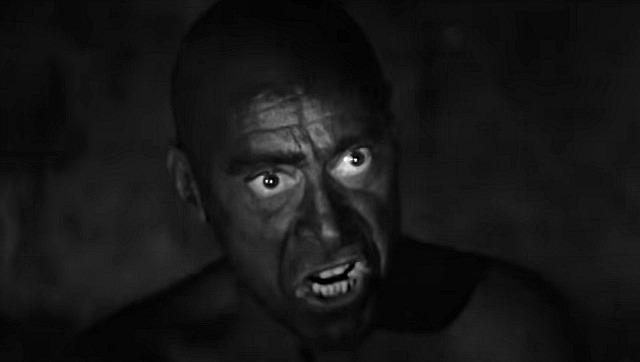Gunga Din has been one of HE’s all-time comfort films for a few decades, or at least since the launch of easy access in the ’90s. To me, Eduardo Ciannelli‘s “kill! kill! kill!” rant provides as much as inner warmth as any family gathering or plate of steaming, gravy-coated white meat, stuffing and broccoli. Simultaneously a brilliant example of expertly conceived Hollywood villainy (special props to dp Joseph August and the key lighting of Cianelli’s eyes) and a prime example of racist Hollywood demonizing of a non-white “other”.
From “Among Filmdom’s Wisest and Most Elegant Villains“, posted on 2.22.15: “Ciannelli‘s fanatical leader of the Thug rebellion is called a ‘tormenting fiend’ by Douglas Fairbanks, Jr. and is made to seem demonic in that famously lighted shot by dp Joseph August. But he’s easily the most principled, eloquent and courageous man in the film. Not to mention the most highly educated.
“And yet there’s an unlikely scene inside the temple that hinges on Ciannelli’s guru being unable to read English, despite his Oxford don bearing and his vast knowledge of world history. Otis Ferguson‘s review of George Stevens‘ 1939 adventure flick ripped it for being a racist and arrogant celebration of British colonial rule. And yet I’ve been emotionally touched and roused by this film all my life. The last half-hour of Gunga Din is perfect, but it ends with Sam Jaffe‘s Indian ‘bhisti’ basking in post-mortem nirvana over having been accepted as a British soldier.
“Which raises a question: Which films have you admired or even loved despite knowing they stand for the wrong things and/or tell appalling lies about the way things are?”

